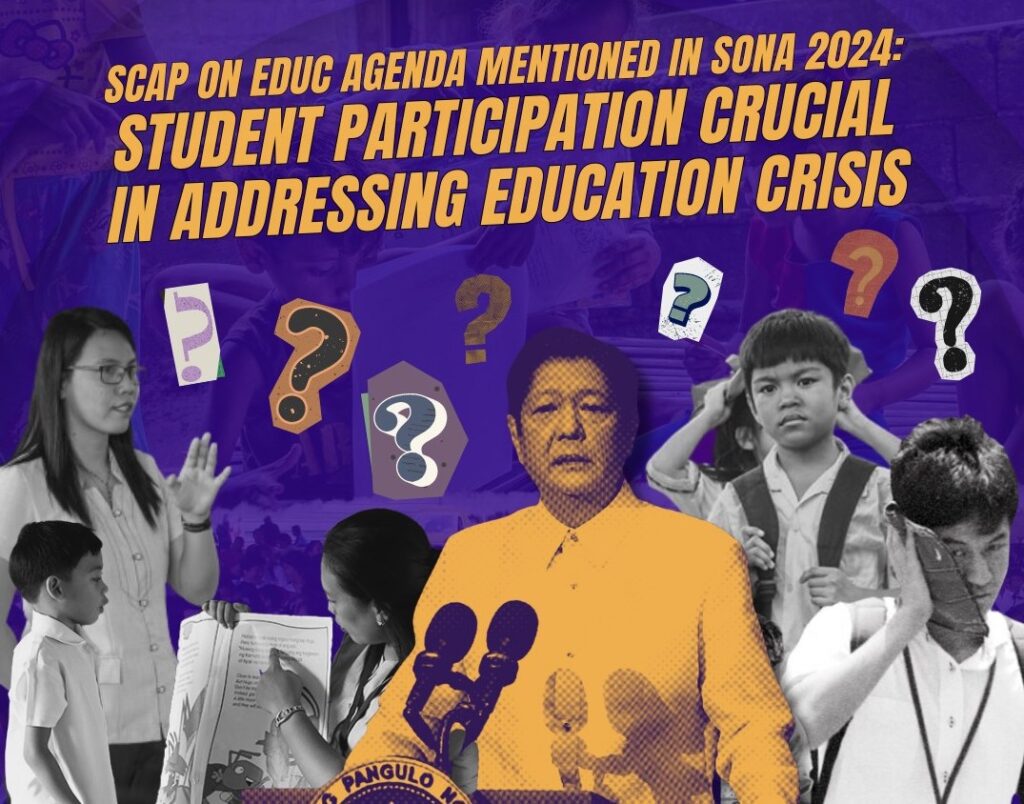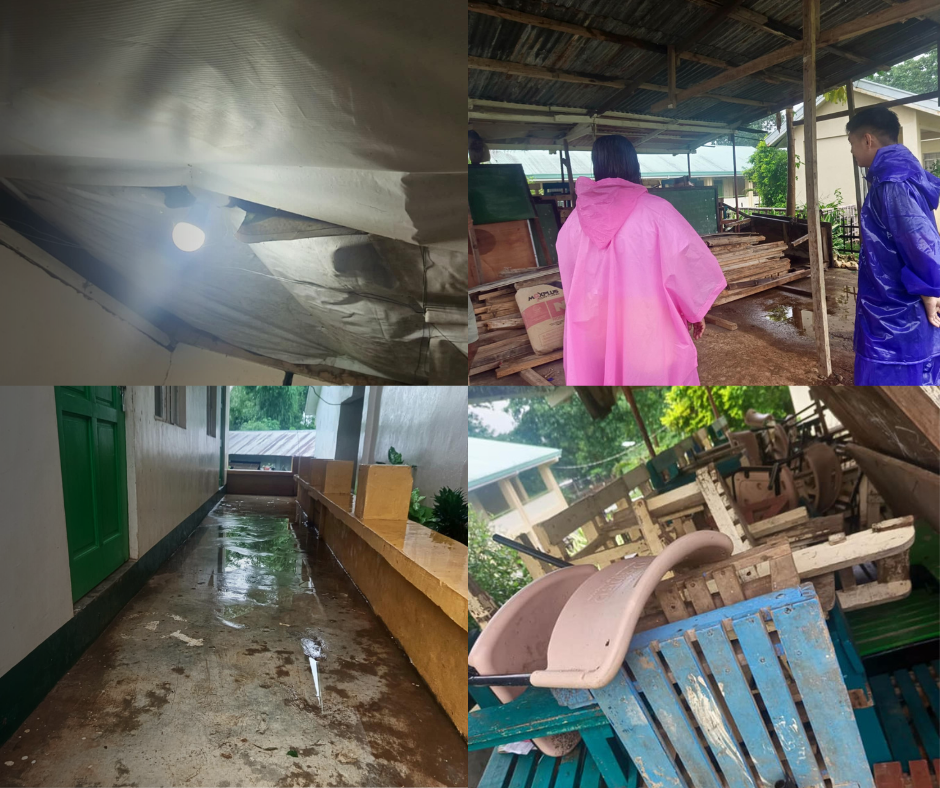Urgent call for reform: Students demand seat at national policy table to fix education crisis

Photo courtesy of Student Council Alliance of the Philippines Facebook page.
The Student Council Alliance of the Philippines (SCAP) is calling for students to be included in discussions about education reform, stressing that their input is essential for addressing ongoing problems in the sector.
The group made this demand following President Ferdinand Marcos Jr.’s State of the Nation Address (SONA) on July 22, where he highlighted persistent issues such as overcrowded classrooms and inadequate funding.
In his speech, Marcos acknowledged the critical issues facing Philippine education but did not address newer concerns like the discrimination against LGBTQIA+ students and unsafe campus environments.
The SCAP argues these problems significantly affect students’ learning experiences and should be tackled with direct input from those affected.
“Effective solutions to these issues can only be identified when students are integrated into education governance,” said the SCAP in a statement released on July 23.
They emphasize that students have firsthand knowledge of the challenges within schools and can provide valuable insights into budget allocations, classroom needs, and curriculum improvements.
The alliance suggests integrating student representatives into decision-making bodies such as Local School Boards (LSBs) to ensure that educational reforms address real concerns.
“We know our struggles best and should be the ones to set the direction and prioritization of education reform,” they added.
The Alliance warns that without transparency, participation and accountability, the education reform agenda announced by Marcos Jr. will remain ineffective.
They stress that simply setting targets is not enough; students must be involved in shaping and monitoring efforts to achieve these goals.
The call for student inclusion comes at a time when the Philippine education system faces mounting pressure to deliver improvements.
By integrating student perspectives, advocates hope to create a more responsive and effective approach to education reform.


